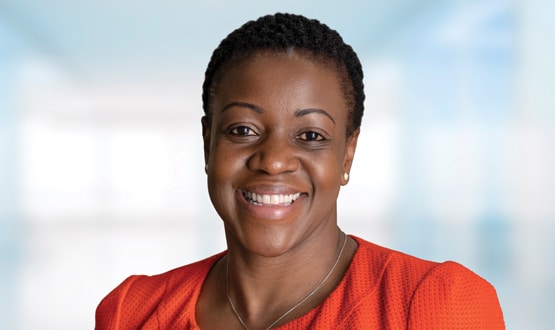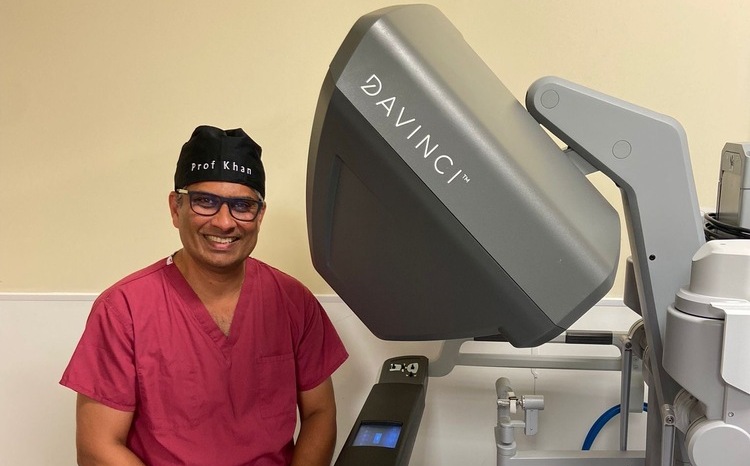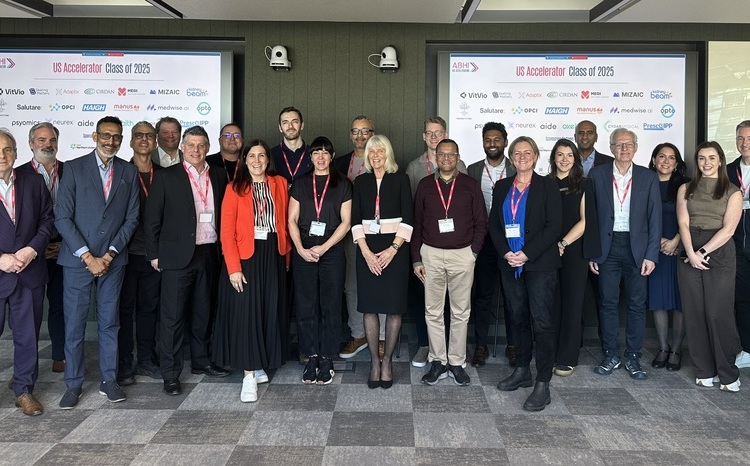In our latest Industry Spotlight, Vivienne Raper spoke to Cerner’s senior nursing executive, Patience Chinwadzimba, about what she feels lies ahead for digital nursing.
Patience Chinwadzimba has spent her 20-year career bringing digital and nursing expertise together. Working with Cerner, she’s determined to create a future for digital nursing that benefits patients and clinicians alike.
Chinwadzimba remembers the exact moment she decided to combine her passion for nursing with a digital career.
“I was working in the emergency department,” she says. “And there was one particular shift where I lost a patient, an elderly man.”
Aware the elderly man was dying, Chinwadzimba had brought his wife to see him. The couple had recently lost their son and, after the father died, she remembers his wife crying, “How could you leave me all by myself? You stupid, stupid man.”
Chinwadzimba went outside to weep. Realising she was burnt out, her manager suggested she took a six-month secondment to help the hospital IT team update their policies and training materials following the installation of a new IT system.
“I could see the link between my clinical background and the new IT system, and it seemed so fluid and simple to me,” she says. At the end of the six months, she decided to move into the digital world – without breaking her link to the world of nursing.
Even now, two decades later, she works weekends in the emergency department at her local hospital.
“I’m lucky to be able to maintain my clinical background, because it helps me do my job better,” she explains. “Part of my role in Cerner, as a nurse, is helping my colleagues.”
Chinwadzimba qualified as an accident and emergency nurse in 1995 and worked at Barnet Hospital in north London. She moved into healthcare IT in 2002. Initially a business analyst at Siemens, she worked briefly for a small Australian IT company as a project manager, before moving to Cerner in 2005.
“I always wanted to work for Cerner,” she says. “It’s been my longest tenure in a job, and I love what I do.”
At Cerner, one of her passions is bringing nurses into the decision-making process around IT systems.
“When we started with our clients, most of our interactions were with the IT department and with the CIO who mostly happened to be a doctor,” Chinwadzimba explains.
Two of her clients had nurse leads in informatics, but Chinwadzimba soon realised they felt frustrated because their role in their organisation was poorly understood.
“When another nurse contacted me, I said ‘why don’t we form our own little group to help and support each other?’ And that’s how we started,” she explains. Today, the Cerner Chief Nursing Informatics Officer (CNIO) Forum has 23 members, which includes both CNIOs and NIOs [Nursing Information Officers].
At each new Cerner client, Chinwadzimba talks passionately to chief nursing officers (CNOs) about why they need a CNIO. “Nurses are the largest workforce in the NHS,” she explains. “So, we need to make sure CNIOs are out there, and we don’t ignore them.”
According to Chinwadzimba, the CNIO forum helps clinicians to get maximum benefit out of their Cerner IT systems. The forum uses the Chatham House Rule, she explains, so that members can freely ask questions about nursing practice and share their frustrations.
“What we’ve done is create a platform for them,” she says. “They can talk to each other and share documents, policies, governance structures and ideas.”
In addition to networking, the forum has its own conferences and educational events, as well as collaborating with nurse informatics professionals internationally.
“The way we practice healthcare in the UK is exactly the same as how they do in Australia,” she says. “I went out to give a keynote at one of our conferences in Australia, about how CNIOs can collaborate, and some of our clients asked to join.”
Today, the group boasts ten Australian Cerner clients as members. They offer their UK counterparts opportunities to visit conferences, and share advice about best practice.
Cerner also have an advocate programme where CNIOs present on their experiences to potential new clients, as well as Special Interest Groups, which cover elements like the user experience testing of new features.
“When we deploy solutions, we get our advocates in the UK to validate the workflows and configurations, to make sure what we’re doing is going to work,” she says. If the solutions aren’t adequate, Cerner’s designers work to change them, she adds.
Moving forward, Chinwadzimba is now bringing her passion for nursing and her IT experience to the Shuri Network, the first NHS and care network for BAME women in digital health.
“I’m currently participating in a digital shadowing programme,” she says. “It involves spending time mentoring and tutoring people who want to come into the industry but think, because they’re a nurse, they can’t.”
“I didn’t have IT experience and I learned on the job, so – as part of the mentoring – I’m saying, ‘you can do this’.”
She’s also recently joined the Faculty of Clinical Informatics and is also currently in the second year of an MSc in Healthcare Informatics.
“As a full-time mother who also works full-time, I decided to go back to school,” she says. “I’d always wanted to do a master’s after my BSc in Critical Care, and it seemed the right time, so I jumped in with both feet!”
She favours more training for student nurses in informatics and using data, to place them in a position to influence key decisions, especially around hardware.
“We need to look at hardware to make sure it’s suitable,” she says. “Maybe the best solution for a nurse is to use a phone to do their documentation while talking to a patient.”
Contact Cerner:
Website: www.cerner.com/gb/en
Twitter: @cernerUK
Linkedin: Cerner







